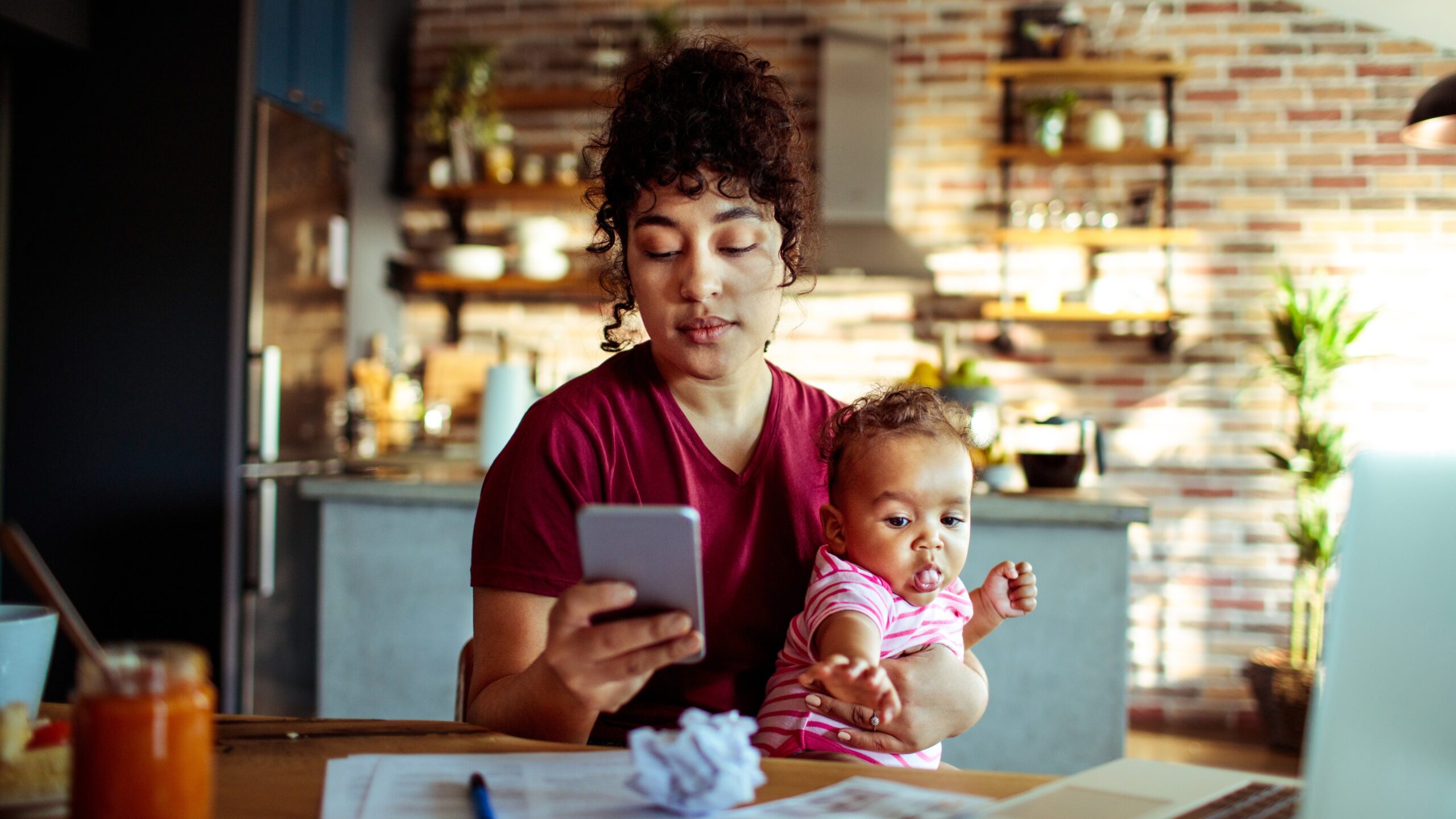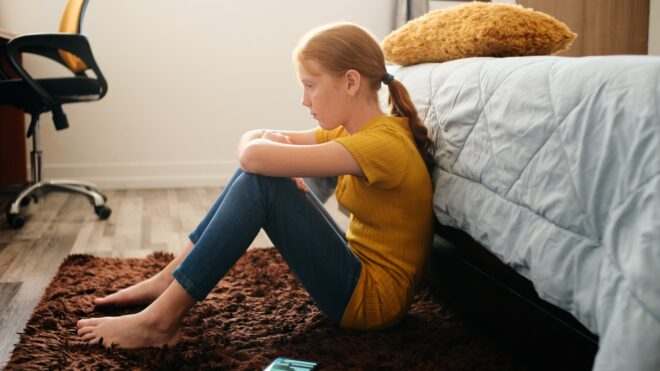
Are you ever at swim lessons or the playground and notice parents on their phones and not paying attention to their kids? Or maybe at home, you have a hard time disconnecting from social media and your kids call you out. You spend so much time encouraging them to unplug from technology, yet you have the same problem. It’s one of the top causes of mom guilt, and according to Leanne Sherred, MS, CCC-SLP, and cofounder of Expressable, this habit can affect your child’s verbal development.
Rachel Homza, MS, CCC-SLP, agrees, telling LittleThings, “Many parents are already well aware of the impacts of a child's unchecked use of screens, but parent use of screen time is important, too. For children from birth to age 3, face-to-face interaction and play rituals with caregivers are very important, both for bonding and for child development. As an example, feeding and mealtimes become a more enjoyable experience for the child if the adult tucks the phone away and interacts with them.”
Sherred reminds us, “Kids do notice when we’re on our phones. In research studies, children often use words like ‘sad’ and ‘lonely’ to describe how they feel when their parents are distracted by their phone. Research has found that parent phone distraction can negatively impact a child’s communication development. Babies are born with billions of neurons in their brain. As they begin to have positive interactions with their caregivers — such as being held when they cry, or making eye contact — their neurons begin to make connections that help support speech and language development. That process is affected if a parent is less responsive to their child.”

She continues, “More and more research on parent phone use around children is being conducted, and the findings are meaningful. Studies with teens reveal that many feel their parents are ‘addicted’ to phone use, and they wish their parents would spend less time on devices. Parents and caregivers themselves report feeling more distracted and less connected with their children when they’re using a phone. They say they tend to be less responsive or have poorer reactions to their child’s emotional needs when they’re distracted by screen time.”

For example, Sherred shares, “In one study conducted at Boston University School of Medicine, researchers evaluated mothers’ verbal interactions with their children during mealtime when phones were used versus not used. When a mother was using a phone, she had 20% less communication with her child and 39% fewer nonverbal interactions, such as eye contact.”

She adds, “Another study outlined how interference from smartphones — also called 'technoference' — can disrupt processes critical to learning language. The study showed that when a parent gazes at their smartphone rather than their infant during interactions, it reduces opportunities for eye contact and joint attention. Joint attention is what happens when two people are interested in the same object or task, and they both know that the other is interested in it. This is a crucial skill for babies to learn in their communication development.”
Sherred urges parents, “As a speech therapist, if I could tell caregivers just one thing, it would be how vital they are in helping their child learn and grow in their communication abilities. Children learn best from the people they love the most and spend the most time with. They thrive when they receive the one-on-one attention they crave.”
Helping your child build communication skills at home by talking to them improves nonverbal interactions like eye contact, their understanding of tones of voice and facial expressions, back-and-forth interactions, play development (which is linked to communication growth), their ability to form phrases and sentences, their understanding of new vocabulary words, turn-taking in conversation, and their ability to communicate wants and needs, according to Sherred.

As children get older, Sherred says, “They also need to navigate the social aspects of communication. These are things like how to introduce themselves, how to begin a conversation with someone, how to solve problems with another person, and appropriate nonverbal body language in conversation.”
To begin making changes in your phone use, Sherred suggests the following:
1. Turn Your Phone Off
"Schedule times in the day when you turn your phone completely off and put it away," says Sherred. "During this time, be intentional about playing or talking with your child. Give them your undivided attention!"
2. Turn Off Unneeded Notifications
"When our phones are constantly buzzing, it’s hard to ignore them," advises Sherred. "Take some time to go through your phone and turn off any app notifications that aren’t necessary. You can always go back and check notifications when you’re not with your child."
3. Be Aware of Your Screen Time Usage
"There are apps that tell you how much time you spend on your phone and which apps you use most," she suggests. "This can provide some insight into which apps you may want to delete or set specific times in the day to check."
4. Rearrange Your Apps
"Move the most distracting ones so they aren’t on the first page of your home screen. You’ll be less likely to click these apps if you don’t see them as soon as you open your phone," Sherred advises. "Similarly, consider removing certain apps from your home screen altogether. You can keep them on your phone — just make them harder to access."
5. Schedule Your Phone Use

"Make a schedule for when you’ll use your phone," she says. "Try to spend a set amount of time on your phone completing necessary tasks, then put it away. You can even make it a point to schedule this time for before your child wakes up, while they’re at school, or after they go to bed."
6. Explain Your Phone Use to Your Child

Finally, Sherred says, "If you’re with your child and pause to use your phone, explain why you’re doing so, whether you’re responding to a time-sensitive text, checking a map, or sending a photo to Grandma."
Feeling inspired? Rachel Homza suggests, “Since screens have become so necessary these days, making dinner a screen-free time might be a more realistic goal for a family to support a child's language development.”
Here’s to family dinner filled with conversations, jokes, and maybe even board games that will prove to be anything but boring for kids.







